A new study shows Queen’s generates more than $1.6 billion in annual economic and social benefits locally, including one in 10 jobs in Kingston and 11 per cent of regional GDP.
Conducted by Deloitte, the Economic and Community Impact Study shows the university’s close engagement with local organizations, government, and other partners provides wide-ranging benefits for the local community, including leading health care and cancer-research expertise, thousands of volunteer hours, millions of dollars in local spending and philanthropy, and support for hundreds of start-ups.
“One of Canada’s greatest economic strengths is its world-class postsecondary education sector, and Queen’s University is a leading example,” says Craig Alexander, Chief Economist and Executive Advisor at Deloitte. “Queen’s makes large-scale investments and is a significant employer in the region, but a strictly traditional economic impact assessment could understate the full importance and impact that Queen’s demonstrates. In our report, we’ve also highlighted the community impacts of the university.”
The report’s findings underscore momentum for the university’s strategic goals as outlined by Principal Patrick Deane in his vision for the university. In particular, the report supports the goal of embedding the university in the community by “building deliberate, strategic, respectful and mutually beneficial engagement with communities outside the University, including Kingston, the region, other organizations and institutions, and national and global networks that share our goals.”
Key economic highlights of the report include:
- $1.67 billion generated by Queen’s activities in Kingston and region annually.
- Queen’s economic activity comprises 11 per cent of regional GDP.
- 1 in 10 jobs in Kingston is located at the university.
- $237 million spent in Kingston by students every year.
- 600 Kingston-based start-up companies supported.
“Kingston is absolutely perfect to launch and grow a business, and we’ve been fortunate to work closely with Queen’s University over the years,” says Dan Desjardins, CEO and co-founder of Kings Distributed Systems, a growing local business. “We’ve hired a lot of excellent students, worked with a lot of intelligent professors, and developed a lot of excellent research.”
Key healthcare highlights of the report include:
- 400+ medical doctors on Queen’s faculty work across a range of specialties in the region.
- 500 medical trials led by the Canadian Cancer Trials Group (CCTG), headquartered at the Queen’s Cancer Institute.
- $620M in research and development funding attracted to Queen’s since 2013.
“We partner with Queen’s in many ways, including renting St. Mary’s of the Lake to test a new model of care delivery, where patients can avoid going to an acute care hospital,” says Cathy Szabo, President and CEO of Providence Care. “They can come to the new site, receive care, and hopefully return home at a level of independence that they can manage their own care.”
Key volunteer and philanthropy highlights of the report include:
- $1 million raised annually by students, staff, and faculty to support local causes, including more than $450,000 for the United Way of KFL&A in 2021.
- Thousands of local volunteer hours worked by students.
“While it is long understood that universities bring value to the communities in which they exist, it is necessary to look deeper, beyond solely the economic contributions, to see how institutions like Queen’s truly impact our communities,” says Patrick Deane, Principal and Vice-Chancellor. “This approach is a key pillar of our new strategic plan. The future of Queen’s depends upon the positive impact we make through the efforts and dedication of our students, faculty, and staff and this is only possible, in part, because of the relationships and collaborations we have with local partners. Together, we all continue to make significant contributions toward building a prosperous, healthy, sustainable, and livable Kingston region.”
Learn more about Deloitte’s work and read the Economic and Community Impact Study in its entirety on the Queen’s Economic and Community Impact website. Alumni will also have an opportunity to hear more about the university’s vision for the future of community impact at an event in the coming months.


